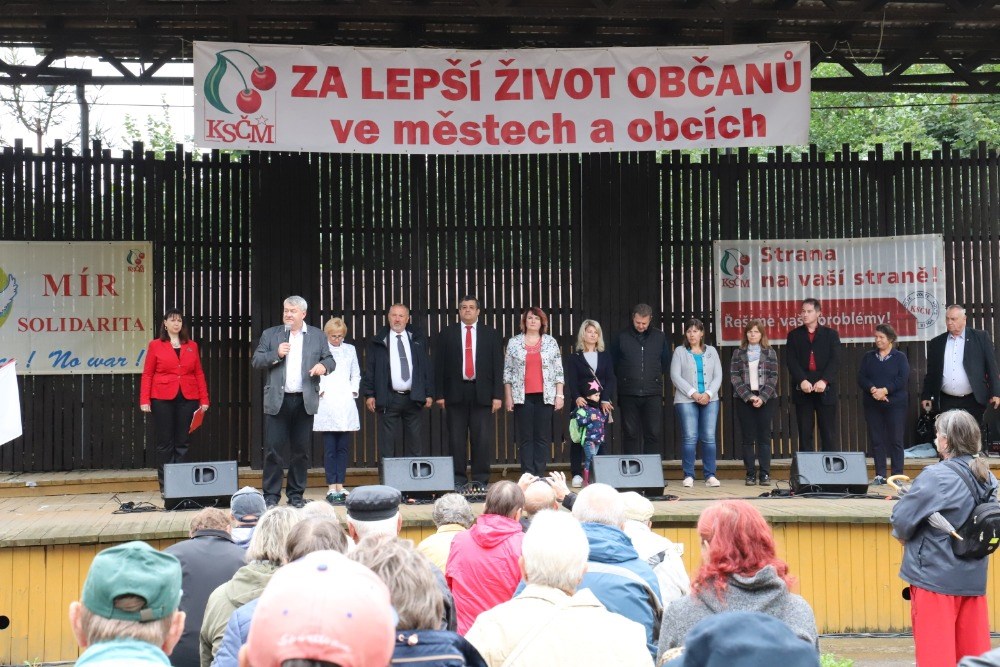The opinion poll, carried out by Kantar CZ, marks a new record low for the Communist Party of Bohemia and Moravia (KSCM), and reflects a number of factors that are squeezing the party’s support. Photo: KSCM / Facebook.
Brno, Sep 11 (BD) – The most recent polling data from pollster Kantar CZ, which carried out its fieldwork from 10-30 August, suggests that KSCM has fallen below the all-important 5% threshold required to secure representation in the Chamber of Deputies, receiving only 4.5% of stated voting intention among the 1,200 data sample. Although the smaller polling research organisation Phoenix Research also published data with KSCM under the 5% mark last December, the recent data represents the first time in the history of the Czech Republic that one of the main four Czech pollsters, who publish monthly reports of their research, have found support for KSCM under this level.
The poll also found that the ruling ANO Movement was maintaining its lead on 30%, with the Pirate Party second on 17%, and ODS third on 14.5%. According to the poll, four other parties would also make it into the Chamber.
While a single poll does not necessarily indicate a concrete trend, and the 4.5% figure is well within the margin of error, the result is part of a gradual decline of support for KSCM, and reflects a number of factors that are causing this decline. Since the transition to democracy, when it was thought that there was no need to ban the party as its support would naturally wither away with time, support for the party has nonetheless fluctuated between 10% and 20%, reaching a high watermark in the 2002 elections when the party won 41 of the 200 seats in the Chamber.
There was great concern among Czech liberals after the last elections in 2017, as the Communist Party ended up providing support for Andrej Babis’s minority coalition government, a first since they lost power in 1989. However, this disquiet masked the fact that the party’s support had fallen to a record low of 7.8%, losing over half their seats. This is partly because the party now faces a demographic challenge, as the majority of its supporters are now over 60 and previous supporters are passing away.
An even more serious problem for the party is that new parties have appeared in recent years that directly challenge KSCM for their support base; since the last election voters have continued to turn away from KSCM towards Babis’s ANO Movement, which has increased pensions and social benefits for the elderly in order to appeal directly to poorer elderly voters, and new far-right parties such as SPD and Vaclav Klaus ml.’s Tricolor movement, which share KSCM’s socially conservative and anti-EU platform.
Meanwhile, the party’s more ideological “true believers” also have reason to feel disillusioned. As political scientist Jiří Pehe pointed out in a recent interview with Radio Prague: “I would assume that those people may not be entirely happy with the fact that their party supports a billionaire, a man that a few decades ago would have been called a class enemy.” For all these reasons, it now seems possible that, some decades after their demise was predicted by the Czech Republic’s new democratic political establishment, the Communists may finally become the next victim of the ever-changing Czech political landscape.
Get the news first! Subscribe to our daily newsletter here. Top stories of the day in your mailbox every morning.








